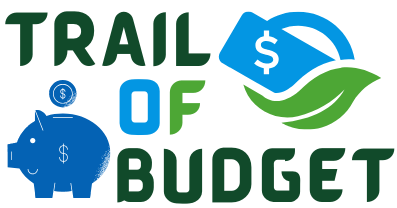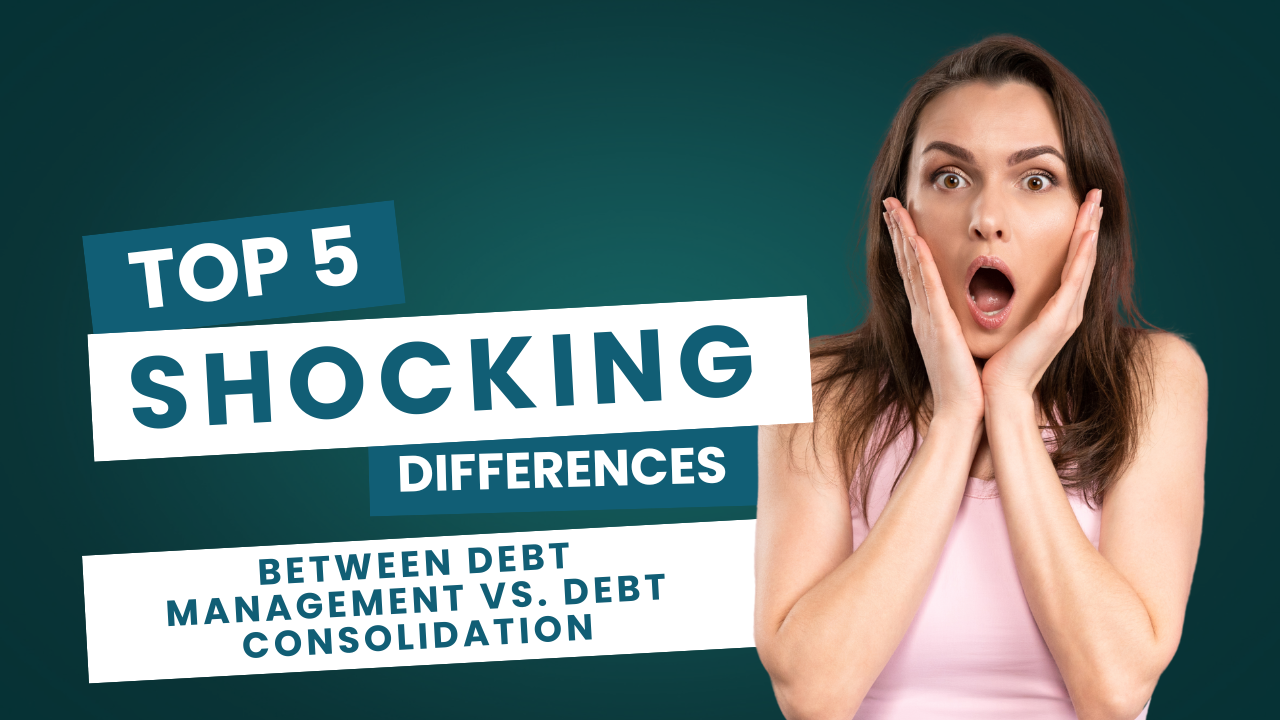Table of Contents
Introduction: Debt Management vs. Debt Consolidation – What’s the Best Option for You?
When you’re overwhelmed with debt, choosing the right strategy is crucial. Debt management vs. debt consolidation are two popular solutions, but they work in different ways. Understanding the key differences between debt management and debt consolidation can help you determine which approach best fits your financial situation. Let’s explore these options to help you make an informed decision.
So, how do you choose the right solution for your financial situation? In this article, we’ll break down the key differences between debt management programs and debt consolidation, so you can make an informed decision and take the first step toward financial freedom.
What Is a Debt Management Program?
A debt management program (DMP) is a structured repayment plan offered by credit counseling agencies. The program focuses on helping individuals pay off unsecured debts, such as credit cards or medical bills, through manageable monthly payments.
How It Works:
- A credit counselor assesses your financial situation.
- They negotiate with creditors to reduce interest rates or waive fees.
- You make a single monthly payment to the credit counseling agency, which distributes the funds to your creditors.
Benefits of a Debt Management Program:

- Lower interest rates on your debts.
- Simplified payments with one monthly amount.
- Avoidance of bankruptcy, which can severely damage your credit.
DMPs are ideal for individuals who are struggling to keep up with multiple payments but can commit to a disciplined repayment plan.
What Is Debt Consolidation?
Debt consolidation is a financial strategy that combines multiple debts into a single loan or line of credit. The primary goal is to streamline payments and potentially secure a lower interest rate.
How It Works:
- You take out a consolidation loan or transfer balances to a single credit card.
- Use the funds to pay off your existing debts.
- Repay the new loan or credit line in monthly installments.
Benefits of Debt Consolidation:
- One monthly payment instead of several.
- Potentially lower interest rates if you qualify for favorable terms.
- Improved cash flow due to extended repayment periods.
Debt consolidation is best suited for individuals with good credit who can qualify for a low-interest loan or balance transfer card.
Key Differences Between Debt Management vs. Debt Consolidation
Now that you know what each solution involves, let’s break down the key differences between debt management vs. debt consolidation:
| Feature | Debt Management Program | Debt Consolidation |
| Who Offers It | Credit counseling agencies | Banks, credit unions, or lenders |
| Type of Debt | Unsecured debts like credit cards | Any debt, including secured loans |
| Credit Score Impact | Minimal impact if payments are timely | Depends on credit inquiry and loan terms |
| Repayment Method | Monthly payment to agency | Monthly payment to lender |
| Eligibility | Open to those with high-interest debt | Requires good credit for low-interest loans |
Pros and Cons of Each Option
Debt Management Program
Pros:
- Helps lower interest rates and fees.
- Provides financial counseling and budgeting advice.
- Doesn’t require a new loan or good credit.
Cons:
- Only applies to unsecured debts.
- Requires strict discipline to stick to the plan.
Debt Consolidation
Pros:
- Simplifies debt with one payment.
- May offer lower interest rates for those with good credit.
- Covers both secured and unsecured debts.
Cons:
- Requires a good credit score to qualify for favorable terms.
- Risk of accumulating new debt if spending habits don’t change.
Choosing Between Debt Management vs. Debt Consolidation
When choosing between debt management vs. debt consolidation, consider the following:
- Your Credit Score:
- If you have poor credit, a DMP may be the better option.
- If your credit is good, you may qualify for a low-interest consolidation loan.
- Type of Debt:
- A DMP is best for unsecured debts like credit cards.
- Debt consolidation can handle a mix of secured and unsecured debts.
- Repayment Discipline:
- A DMP requires you to stick to a structured plan for several years.
- Consolidation loans may allow more flexibility but require self-control.
Internal and External Resources
For more guidance on managing debt, check out our guide to the best debt relief programs. Additionally, visit Consumer.gov’s debt management resources for credible external advice.
Conclusion: Take Control of Your Finances Today
In conclusion, understanding the differences between debt management vs. debt consolidation is key to making the right choice for your financial future. Both options offer benefits, but the best one for you depends on your credit, the type of debt you have, and your ability to stick to a repayment plan. Take the time to evaluate both strategies and consider consulting a financial advisor to ensure you make the most informed decision possible.
If you’re unsure which path to take, consult a credit counselor or financial advisor for personalized advice. Remember, the key to success is not just choosing the right solution but also committing to better financial habits moving forward.

